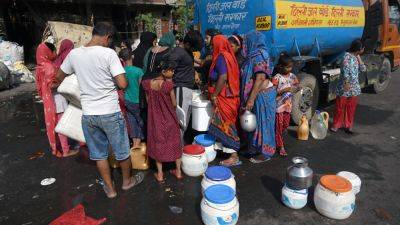India’s sacred Ganges River is also one of the world’s most polluted. Will it ever be clean?
Most Indians believe the Ganges, originating from the ice cave of Gaumukh near the temple town of Gangotri, has a self-purifying quality and is seen as a living goddess, supplying water for some 40 per cent of the country’s population.
India’s holiest waterway, celebrated with birth and death ceremonies on its banks, is however also somewhat of a paradox, as it became through the decades of human activities one of the world’s most polluted rivers. It is linked to several waterborne diseases which kill thousands of adults and children annually.
The Indian government has been trying to clean up the Ganges since the 1980s, and has spent millions of dollars. For years, the Ganges clean-up has been a political issue, with many accusations of corruption and mismanagement. According to leading Ganges activists, big dams are destroying the very character of the river.
In May 2019, the Central Pollution Control Board said in a report that the water from the Ganges was absolutely unfit for “direct drinking”. The river’s faecal coliform level (found in gut and faeces of warm-blooded animals) was detected to be three to 12 times higher than the permissible level at most interstate boundaries.
The National Green Tribunal in 2022, while hearing a cluster of cases around Ganges pollution dating back to 1985, observed that “nearly 50 per cent of untreated sewage and substantial industrial effluents are still being discharged in the river or its tributaries, in absence of requisite functional treatment capacity”.
Describing long-time government clean-up efforts as a “collective failure”, Priti Mahesh, chief programme coordinator of Toxics Link, an environmental NGO in New Delhi, told This Week in Asia: “Despite efforts, the faltering progress







